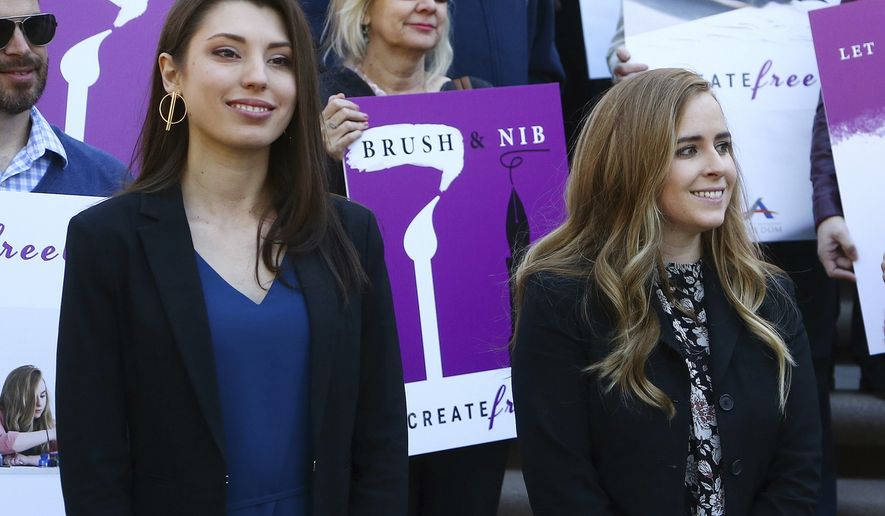Two artists cannot be forced by the state to create custom invitations for same-sex weddings, the Arizona Supreme Court ruled Monday, saying it would run afoul of their Constitutional rights.
In a 4-3 opinion, the state’s highest court said Breanna Koski and Joanna Duka, owners of Brush & NIB Studio which offers custom wedding invitations, cannot be subject to a city of Phoenix ordinance that prohibits discrimination on the basis of sexual orientation.
The court’s move was the latest win for religious liberty advocates, who have been challenging public accommodations laws across the country. The legal battles have pitted the First Amendment against LGBTQ rights, and have led to conflicted court rulings.
“Duka and Koski’s beliefs about same-sex marriage may seem old-fashioned, or even offensive to some. But the guarantees of free speech and freedom of religion are not only for those who are deemed sufficiently enlightened, advanced, or progressive. They are for everyone,” Justice Andrew Gould wrote for the court.
The ruling was limited to the artists and to their wedding invitations, and the court noted in its 52-page opinion the city had not yet filed any action against the business for violating the ordinance.
A spokesperson from the city of Phoenix said its anti-discrimination law is still legally valid and remains in effect.
“The Arizona Supreme Court made a very narrow ruling that one local business has the right to refuse to make custom wedding invitations for same-sex couples’ weddings that are similar to the designer’s previous products. This ruling does not apply to any other business in Phoenix,” the spokesperson said.
Three of the court’s justices disagreed with the majority’s ruling, saying the city’s law does not regulate speech — only conduct.
“Our constitutions and laws do not entitle a business to discriminate among customers based on its owners’ disapproval of certain groups, even if that disapproval is based on sincerely held religious beliefs,” read the dissent authored by Justice Scott Bales, who retired this summer.
LGBTQ advocates decried the court’s move.
“This ruling is dramatically at odds with decisions by courts across the country that have instead refused to create a religious license for businesses to exempt themselves from civil rights laws, and to pick and choose their customers according to their own religious criteria,” said Jennifer Pizer, senior counsel at Lambda Legal.
Last year, the U.S. Supreme Court, in a case involving a Christian baker who refused to bake a custom cake for a same-sex wedding, that Colorado’s Civil Rights Commission showed religious animus against him and ruled for him on those narrow grounds.
Since the decision, other courts have ruled both for and against religious plaintiffs in similar situations.
A florist in Washington has appealed to the U.S. Supreme Court after her state’s Supreme Court ruled against her for refusing to create floral arrangements for a same-sex wedding. But in Minnesota, a film company wishing to enter the wedding business, but refusing to work with same-sex ceremonies, won its case in federal court last month.
• Alex Swoyer can be reached at aswoyer@washingtontimes.com.




Please read our comment policy before commenting.